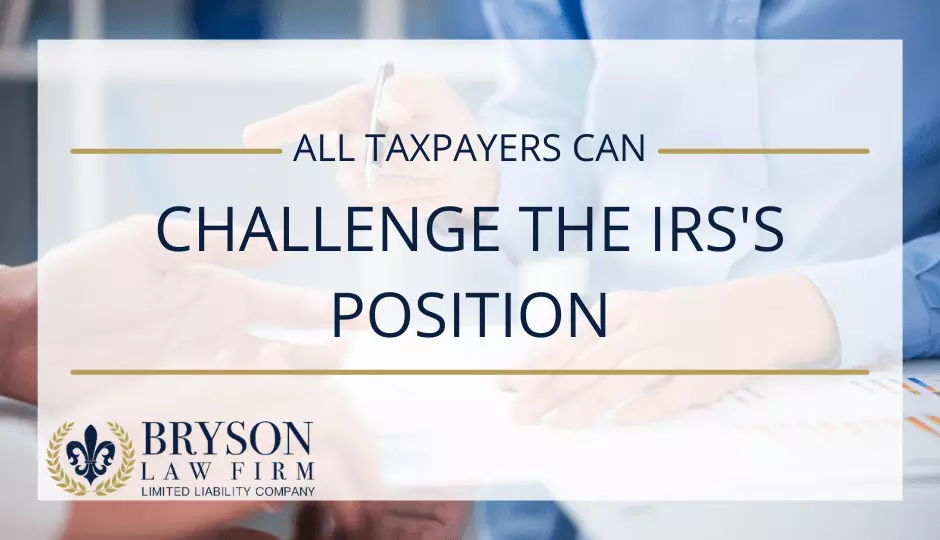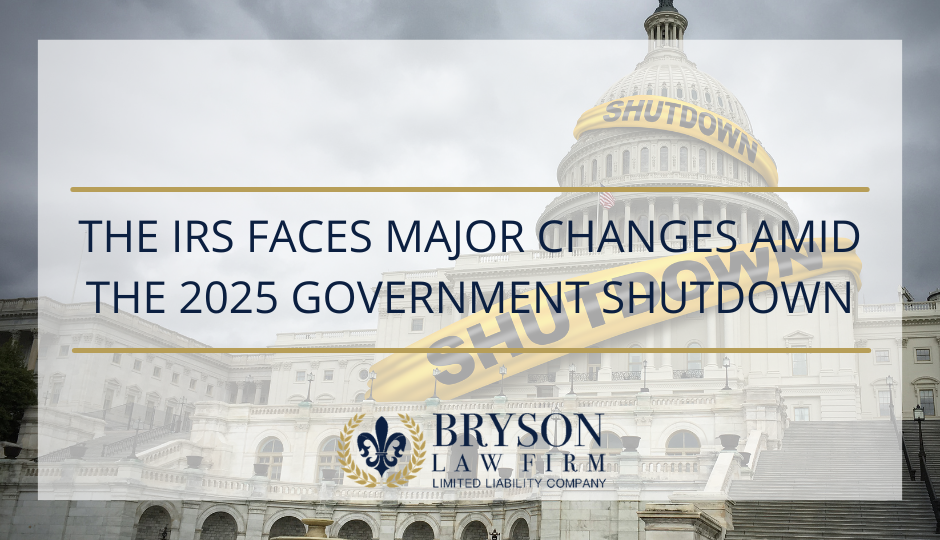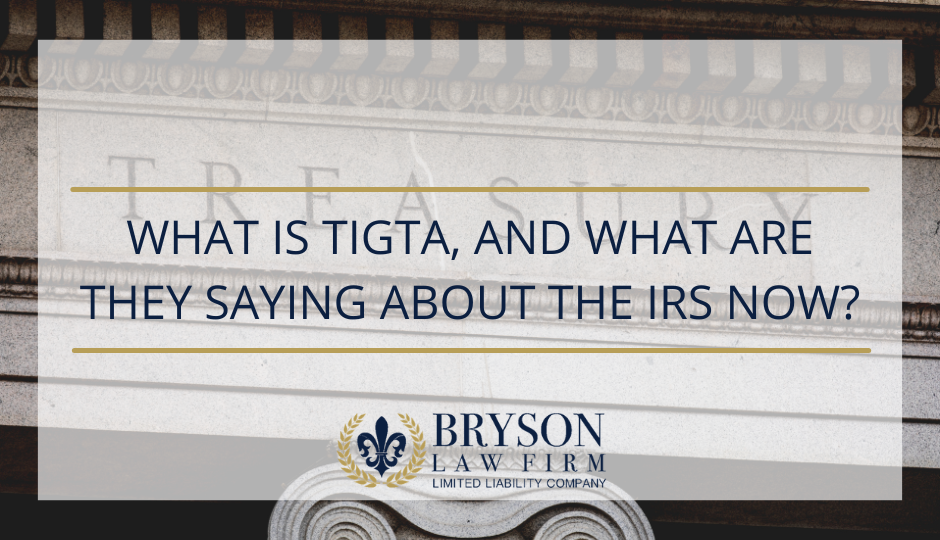The Taxpayer Bill of Rights outlines fundamental rights every Taxpayer has in IRS matters. It codifies a Taxpayer’s right to challenge an IRS and be heard.
Taxpayers have the right to:
- Raise objections;
- Provide additional documentation in response to formal or proposed IRS actions;
- Expect the IRS to consider their timely objections;
- Have the IRS consider any supporting documentation promptly and fairly; and
- Receive a response if the IRS does not agree with their position.
How Bryson Law Firm, LLC can help:
We have represented thousands of clients before the IRS over the years. Many times, we are required to Appeal IRS findings through the IRS Office of Appeals or dispute IRS findings through Audit Reconsideration efforts and/or Doubt as to Liability Offers in Compromise efforts. In some cases, we are required to petition the United States Tax Court to challenge an IRS position.
We work with our clients to collect supporting documentation that will enable us to challenge the IRS’ position. We identify the relevant tax laws, Internal Revenue Code provisions, and IRS rules supporting your case. Once we have determined the clearest path to success, we’ll begin building our case against the IRS ruling. We review your IRS accounts to determine your eligibility for an Appeal and other Tax Resolution options to dispute an IRS decision.
During the dispute process, payments toward a tax figure in dispute are often delayed until after the completion of the appeal. Keep in mind, though, the interest and penalties will continue to accrue during, so it is important to feel confident that you will receive a favorable ruling. We will be able to give you an honest assessment of that before we start on any dispute with the IRS.
Specific things the Taxpayer Bill of Rights affords Taxpayers on Challenging an IRS Position:
- In some cases, the IRS will notify a taxpayer that their tax return has a math or clerical error. If this happens, the Taxpayer:
- Has 60 days to tell the IRS that they disagree;
- Should provide copies of any records that may help correct the error;
- May call the number listed on the letter or bill for assistance; and
- Can expect the agency to make the necessary adjustment to their account and send a correction if the IRS upholds the Taxpayer's position.
- If the IRS does not agree with the Taxpayer's position:
- The agency will issue a notice proposing a tax adjustment. This is a letter that comes in the mail.
- This notice provides the Taxpayer with a right to challenge the proposed adjustment.
- The Taxpayer makes this challenge by filing a petition in U.S. Tax Court. The taxpayer must generally file the petition within 90 days of the date of the notice, or 150 days if it is addressed outside the United States.
- Taxpayers can submit documentation and raise objections during an audit. If the IRS does not agree with the Taxpayer's position, the agency issues a notice explaining why it is increasing the tax. Prior to paying the tax, the Taxpayer has the right to petition the U.S. Tax Court and challenge the agency's decision.
- In some circumstances, the IRS must provide a Taxpayer with an opportunity for a hearing before an independent Office of Appeals. The agency must do this:
- Before taking enforcement actions to collect a tax debt. These actions include levying the taxpayer's bank account. Immediately after filing a notice of federal tax lien in the appropriate state filing location. If the Taxpayer disagrees with the decision of the Appeals Office, they can petition the U.S. Tax Court.























